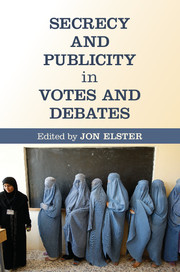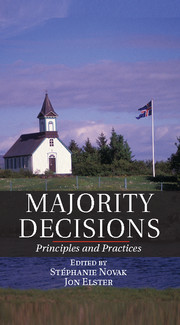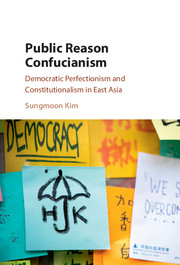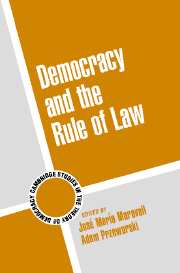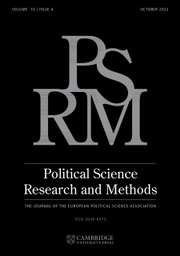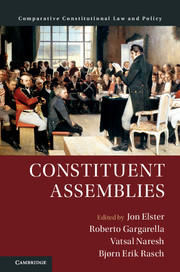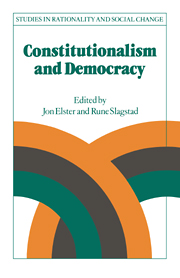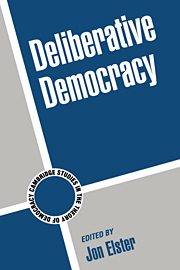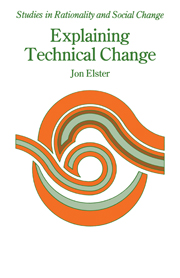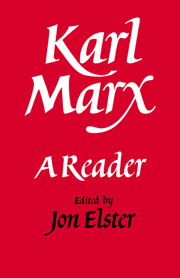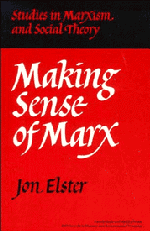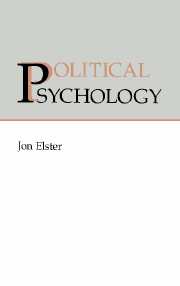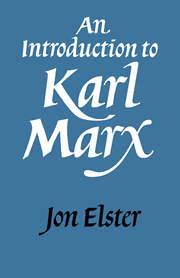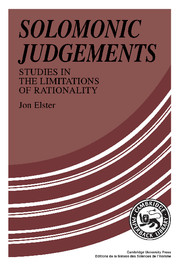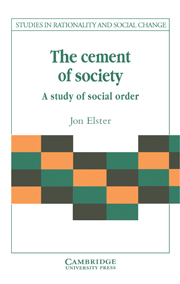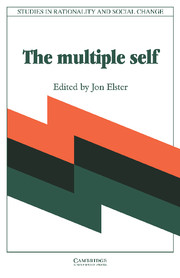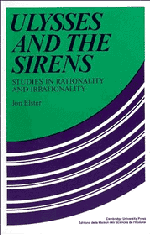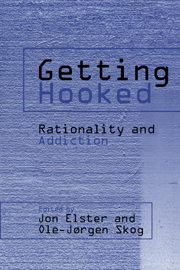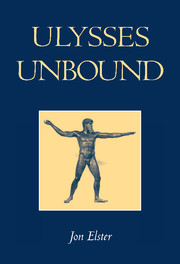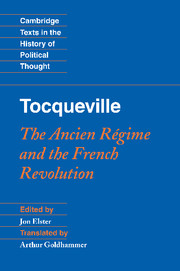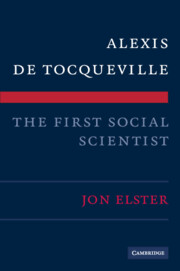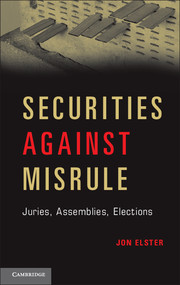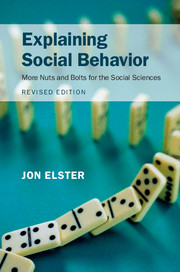Secrecy and Publicity in Votes and Debates
$120.00 (C)
- Editor: Jon Elster, Columbia University, New York
- Date Published: June 2015
- availability: Available
- format: Hardback
- isbn: 9781107083363
$
120.00
(C)
Hardback
Other available formats:
eBook
Looking for an examination copy?
This title is not currently available for examination. However, if you are interested in the title for your course we can consider offering an examination copy. To register your interest please contact [email protected] providing details of the course you are teaching.
-
In the spirit of Jeremy Bentham's Political Tactics, this volume offers the first comprehensive discussion of the effects of secrecy and publicity on debates and votes in committees and assemblies. The contributors – sociologists, political scientists, historians, and legal scholars – consider the micro-technology of voting (the devil is in the detail), the historical relations between the secret ballot and universal suffrage, the use and abolition of secret voting in parliamentary decisions, and the sometimes perverse effects of the drive for greater openness and transparency in public affairs. The authors also discuss the normative questions of secret versus public voting in national elections and of optimal mixes of secrecy and publicity, as well as the opportunities for strategic behavior created by different voting systems. Together with two previous volumes on Collective Wisdom (Cambrige, 2012) and Majority Decisions (Cambridge, 2014), the book sets a new standard for interdisciplinary work on collective decision-making.
Read more- The first book of its kind - a comprehensive overview of secrecy and publicity in debates and votes
- Discusses a topic of perennial interest and will appeal to practitioners of politics as well as students of the subject
- Highly interdisciplinary - will appeal to historians, sociologists, political scientists and legal scholars
Reviews & endorsements
"This is a volume that breaks new ground and is of great theoretical, historical, and empirical interest. The editor has managed to get together a fine group of experts, some of them quite prominent in the social sciences. In many chapters, the narratives are full of surprises, twists, and puzzles so as to make an interesting reading to general social science readers beyond specialists on electoral systems and their historical evolution. This collection is full of fresh and stimulating insights and hypotheses that can be derived from publicity vs. secrecy as an independent variable, be it in voting constituencies, assemblies, or other bodies. It will find resonance among democratic theorists and other social scientists who are interested in the question of how procedures shape outcomes, or form content."
Claus Offe, Hertie School of GovernanceSee more reviews"This book makes a significant contribution to the field of democratic institutional design, history, and theory. This work contributes to the broader, exciting developments that have emerged over the last two decades in the theory and practice of democratic institutional design (to which several contributors to this volume have made major contributions) … In this collection of wide-ranging essays, democratic theory is brought down to ground through demonstrations of how the large theoretical issues play out in the context of specific institutional design choices, and through portraits of how consequential for the structure and outcomes of politics small-scale changes can be in the ground-rules and institutional forms in which democratic politics is channeled. This collection will be highly influential across a number of academic disciplines, including comparative studies."
Richard Pildes, Sudler Family Professor of Constitutional Law, New York UniversityCustomer reviews
Not yet reviewed
Be the first to review
Review was not posted due to profanity
×Product details
- Date Published: June 2015
- format: Hardback
- isbn: 9781107083363
- length: 268 pages
- dimensions: 235 x 160 x 25 mm
- weight: 0.6kg
- contains: 8 b/w illus. 18 tables
- availability: Available
Table of Contents
Introduction Jon Elster
1. Public voting and political modernization: different views from the nineteenth century and new ideas to modernize voting procedures Hubertus Buchstein
2. Semi-public voting at the Constituante Jon Elster and Arnaud le Pillouer
3. The introduction of the vote by ballot in the election of the Syndics of the Republic of Geneva (1707) Raphael Barat
4. Suffrage and voting secrecy in general elections Adam Przeworski
5. Secret voting in the Italian Parliament Daniela Giannetti
6. Open decision-making procedures and public legitimacy: an inventory of causal mechanisms Jenny de Fine Licht and Daniel Naurin
7. How publicity creates opacity: what happens when EU ministers vote publicly Stéphanie Novak
8. Secret-public voting in FDA advisory committees Philippe Urfalino and Pascaline Costa
9. Disclosed and undisclosed vote in Constitutional/Supreme Courts Pasquale Pasquino
10. Why open voting in general elections is undesirable Bernard Manin
11. Open-secret voting Adrian Vermeule
12. Secret votes and secret talk John Ferejohn.
Sorry, this resource is locked
Please register or sign in to request access. If you are having problems accessing these resources please email [email protected]
Register Sign in» Proceed
You are now leaving the Cambridge University Press website. Your eBook purchase and download will be completed by our partner www.ebooks.com. Please see the permission section of the www.ebooks.com catalogue page for details of the print & copy limits on our eBooks.
Continue ×Are you sure you want to delete your account?
This cannot be undone.
Thank you for your feedback which will help us improve our service.
If you requested a response, we will make sure to get back to you shortly.
×
